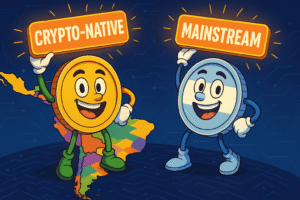The Role of Decentralized Exchanges in the Decentralized Finance (DeFi) Ecosystem

Decentralized finance (DeFi) is a revolutionary concept in the financial industry that enables users to access financial services without intermediaries. The DeFi ecosystem has experienced significant growth in recent years, with decentralized exchanges (DEXs) emerging as a crucial component of the ecosystem. In this article, we will explore the role of DEXs in the DeFi ecosystem.
What are Decentralized Exchanges (DEXs)?
Decentralized exchanges (DEXs) are cryptocurrency exchanges that operate without the need for a central authority or intermediary. DEXs allow users to trade cryptocurrencies directly with each other, without the need for a middleman. Instead of using a centralized order book, DEXs use smart contracts to execute trades automatically, ensuring transparency and security.
The Rise of Decentralized Exchanges (DEXs)
Decentralized exchanges have become an essential part of the Decentralized Finance ecosystem due to their ability to facilitate peer-to-peer trading without the need for intermediaries. DEXs have been around for several years, but their popularity has increased significantly in recent years, especially in the wake of the DeFi boom.
The Advantages of Decentralized Exchanges (DEXs)
Decentralized exchanges offer several advantages over traditional centralized exchanges, including:
- Security: DEXs are more secure than centralized exchanges because they don’t rely on a central authority to store users’ funds. Instead, users have control over their funds, and trades are executed automatically using smart contracts, reducing the risk of hacking and fraud.
- Transparency: DEXs are transparent because all transactions are recorded on the blockchain, and users can view the transaction history of any wallet address. This ensures that users can trust the integrity of the exchange and its operations.
- Privacy: DEXs offer greater privacy than centralized exchanges because users don’t need to provide personal information to trade. Instead, users can trade anonymously, which helps protect their identity and financial information.
- Accessibility: DEXs are more accessible than centralized exchanges because they don’t require users to register and pass KYC/AML checks. This makes it easier for users to trade cryptocurrencies, especially in countries where traditional banking services are not readily available.
The Role of Decentralized Exchanges (DEXs) in the Decentralized Finance Ecosystem
Decentralized exchanges play a crucial role in the Decentralized Finance ecosystem by enabling users to trade cryptocurrencies directly with each other, without the need for intermediaries. DEXs have become a fundamental building block of DeFi, providing liquidity and facilitating the trading of a wide range of tokens.
- Liquidity: Decentralized exchanges provide liquidity to the DeFi ecosystem by allowing users to trade cryptocurrencies without the need for intermediaries. This ensures that there is always a market for tokens, enabling users to buy and sell cryptocurrencies easily.
- Price Discovery: DEXs help with price discovery by providing a decentralized and transparent market for cryptocurrencies. This ensures that the price of tokens is determined by market forces, rather than being controlled by a central authority.
- Token Listings: DEXs facilitate the listing of new tokens, enabling new projects to access the DeFi ecosystem. This helps drive innovation and growth within the DeFi ecosystem.
- Decentralization: DEXs promote decentralization within the DeFi ecosystem by providing a decentralized alternative to centralized exchanges. This helps ensure that the DeFi ecosystem remains true to its core principles of decentralization and democratization.
Challenges Facing Decentralized Exchanges (DEXs)
Despite the advantages of DEXs, there are several challenges that they face, including:
- Low Liquidity: DEXs often suffer from low liquidity, which makes it challenging for users to buy and sell tokens. This can result in higher transaction fees and longer wait times.
- User Experience: DEXs can be challenging to use, especially for new users who are unfamiliar with the DeFi ecosystem. This can lead to a poor user experience, making it difficult for DEXs to compete with centralized exchanges.
- Centralization of Liquidity: While DEXs promote decentralization, liquidity can become centralized on some platforms, with a few users controlling a significant portion of the liquidity. This can lead to a lack of competition and potentially harm the overall health of the DeFi ecosystem.
- Security Concerns: While DEXs are generally more secure than centralized exchanges, they are not immune to security concerns. Smart contract vulnerabilities and other security issues can put users’ funds at risk, highlighting the importance of thorough auditing and security measures.
Conclusion
Decentralized exchanges (DEXs) play a crucial role in the Decentralized Finance ecosystem by enabling users to trade cryptocurrencies directly with each other, without intermediaries. DEXs offer several advantages over traditional centralized exchanges, including security, transparency, privacy, and accessibility. DEXs provide liquidity, price discovery, token listings, and decentralization to the DeFi ecosystem, driving innovation and growth. Despite their advantages, DEXs face several challenges, including low liquidity, poor user experience, centralization of liquidity, and security concerns. Overall, DEXs are a crucial component of the DeFi ecosystem, providing a decentralized alternative to centralized exchanges and enabling users to access financial services without intermediaries.

I have been in the industry for over 5 years. I know all the latest news and what is going on with different coins. I write about Bitcoin, Ethereum, Litecoin, and more.








